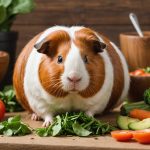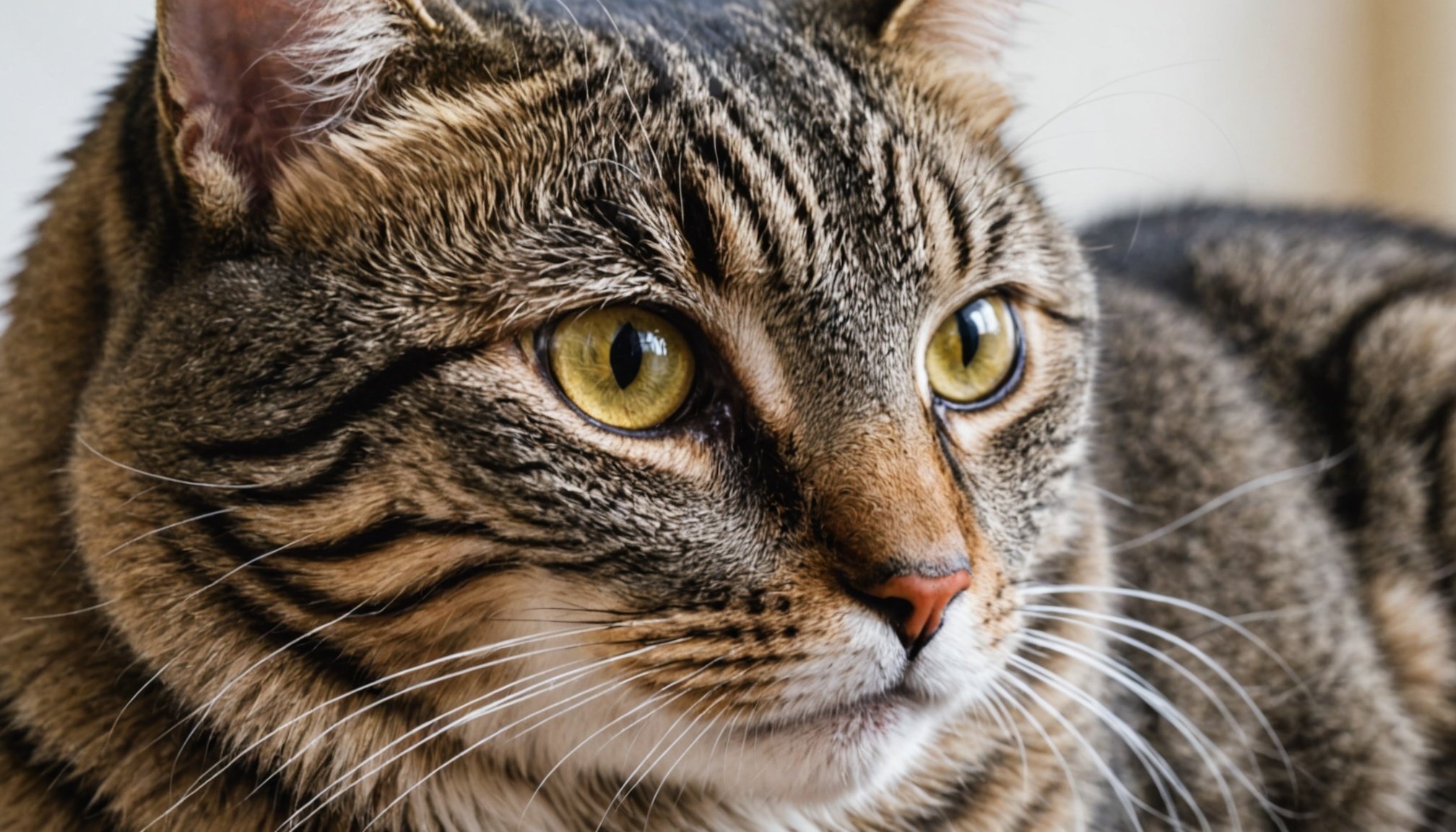Understanding Cardiac Issues in Senior Cats
Cardiac issues in senior cats can often go unnoticed until they become severe. Maintaining feline heart health requires awareness of common conditions such as hypertrophic cardiomyopathy, often found in older cats. Other prevalent issues include valvular heart disease and congestive heart failure.
Key symptoms of heart disease in senior cats include lethargy, difficulty breathing, and decreased appetite. Affected felines may also display signs like coughing or fainting spells. Weight loss and changes in behaviour are additional indicators that warrant attention.
Regular veterinary check-ups are crucial to preserving feline heart health. Early detection through physical exams and diagnostic tools such as X-rays or echocardiograms can significantly enhance treatment outcomes. Veterinarians can advise on tailored care plans, including medication and dietary adjustments, to manage cardiac conditions effectively.
- Hypertrophic Cardiomyopathy: Most common heart disease in cats.
- Valvular Heart Disease: Involves the deterioration of heart valves.
- Congestive Heart Failure: Results from the heart’s inability to pump efficiently.
Proactively monitoring your cat for any changes and seeking professional advice can lead to timely interventions. Understanding the subtle signs and prioritising routine health checks play a fundamental role in managing cardiac issues in senior cats.
Nutritional Strategies for Heart Health
As cats age, maintaining a heart-healthy diet becomes crucial for their longevity and well-being. Understanding the necessary nutrients is key to formulating an effective diet for senior cats.
Essential Nutrients for Senior Cats
Omega-3 fatty acids play a vital role in supporting heart health in senior cats. These essential fats contribute to reducing inflammation and maintaining cardiovascular function. Taurine, another critical nutrient, is indispensable for cats, preventing heart disease and sustaining overall health. Including these nutrients in your cat’s diet ensures they receive the benefits necessary for healthy aging.
Recommended Cat Food Options
Opting for commercial heart-healthy cat food is a practical approach, as these products are often formulated with the vital nutrients senior cats need. When choosing, look for foods explicitly designed with aging cats in mind, noting the presence of omega-3s and taurine. For those preferring homemade diets, ensure a balanced blend of these critical nutrients to match commercial benefits.
Importance of Hydration
Hydration in senior cats significantly impacts their health, especially heart function. Encouraging drinking by offering fresh water daily and options like wet food can help. Monitoring water intake is fundamental, observing any changes that might signal decline, ensuring your cat stays hydrated and healthy.
These strategies not only support heart health but also contribute to senior cats’ overall quality of life. Making informed, nutrient-focused decisions aids in promoting your feline companion’s longevity and resilience.
Exercise and Physical Activity for Senior Cats
Feline physical activity plays a crucial role in maintaining overall well-being, including heart health benefits. Regular exercise can help senior cats keep their weight in check, reducing the risk of obesity-related heart issues. Engaging in appropriate activities supports healthy circulation and tones muscles, which are essential for a cat’s cardiovascular system.
Finding safe activities is key to ensuring that exercise remains beneficial for elder felines. Gentle games like feather chasing or wand toys can stimulate their natural instincts without overexerting them. These activities cater specifically to senior cats’ slower pace and limited agility, making them excellent options.
However, it’s important to adapt exercise for senior cats based on each cat’s individual health status. Considerations such as arthritis, heart conditions, or respiratory problems might necessitate modifying or limiting certain activities. Before altering any routine, it’s advisable to consult with a veterinarian to ensure these adjustments align with the cat’s health needs.
Incorporating short, consistent sessions of feline physical activity not only supports physical health but also boosts mental stimulation. This holistic approach ensures that senior cats not only enjoy the movement but maintain a robust quality of life, encouraging owners to actively engage with their pets’ exercise routines.
Regular Veterinary Care for Heart Monitoring
Caring for senior cats involves special attention to feline cardiac health. Understanding the nuances of veterinary care for senior cats can be crucial in preventing heart problems. Regular veterinary visits enable the detection of heart disease early, improving management outcomes.
Recommended Heart Health Screenings
Heart disease management starts with appropriate screenings. Veterinary professionals suggest annual check-ups for senior cats to monitor cardiac health. These may include echocardiograms and electrocardiograms, providing insight into heart function and detecting potential issues before they escalate.
When to Seek Immediate Veterinary Care
Certain symptoms in your cat warrant immediate veterinary intervention. Key indicators include persistent coughing, rapid breathing, and lethargy. If you observe these signs, seek veterinary care promptly to address potential cardiac problems.
Importance of Blood Tests and Imaging
Blood tests and imaging play pivotal roles in assessing and managing feline heart health. Blood tests help evaluate cardiac markers, while x-rays and ultrasounds offer detailed images of the heart structure and functionality. Adhering to guidelines for veterinary visits ensures your cat’s health and well-being, fostering a longer, healthier life for your feline companion.
Supplements and Medications for Heart Health
Exploring effective supplements for cat heart health can make a significant difference in managing your feline’s cardiac wellness. Popular choices include CoQ10 and taurine. CoQ10, an antioxidant, plays a crucial role in promoting heart energy efficiency. Taurine is vital for healthy heart muscle function, and its deficiency can lead to severe heart issues. Both of these supplements support overall cardiac performance and can be integral to a preventive care routine.
When dealing with more advanced cardiac issues, cardiac medications for felines become necessary. These medications are often prescribed to manage specific heart conditions, such as heart failure or hypertension. Options like ACE inhibitors or beta-blockers can help maintain blood pressure and reduce the heart’s workload, improving the quality of life for your cat. Working with your veterinarian to navigate these medications ensures that your cat receives optimal care tailored to its needs.
Consulting your veterinarian is crucial for determining a personalized plan for your cat’s heart health. They can recommend an appropriate mix of nutritional support and prescribed medications, creating a comprehensive treatment strategy. Ensuring that these treatments are specific to your cat’s individual condition is key, which emphasizes the importance of professional guidance in these matters.
Lifestyle Adjustments for Optimal Heart Health
Cats, especially seniors, benefit from tailored lifestyle changes. Adjustments in their environment can promote both physical and mental well-being.
Creating a Stress-Free Environment
Reducing stress is critical for senior cats. A calm environment can prevent stress-related health issues. Minimise loud noises and sudden changes at home. Environmental enrichment like gentle background music or providing hiding spots offers comfort. Evaluate potential stress factors: perhaps rearrange furniture or ensure consistent feeding schedules.
Importance of Routine and Stability
Establishing a consistent daily routine ensures that senior cats feel secure. Predictability with feeding times, play, and grooming can reduce anxiety and behaviour issues, further supporting heart health. Cats thrive on stability, emphasising the need for structured routines. Thus, routines aren’t just helpful—they’re essential for maintaining feline well-being.
Engaging Activities with Your Cat
Interactive play engages both mind and body, offering enrichment. Activities like puzzle feeders or feather wands stimulate curiosity. Regular interaction and play sessions cater to a cat’s natural instincts. Simple yet engaging activities can reduce stress and enhance heart health by promoting exercise. Consider rotating toys to keep them novel and exciting. By providing various mental challenges, you enrich their daily lives.
Tips for Minimizing Stress Factors in the Home
- Keep changes subtle and gradual.
- Offer a rotation of engaging activities.
- Maintain a clean and comfortable litter box area.
Creating a tranquil environment supports not just the cat’s heart, but its holistic health.










